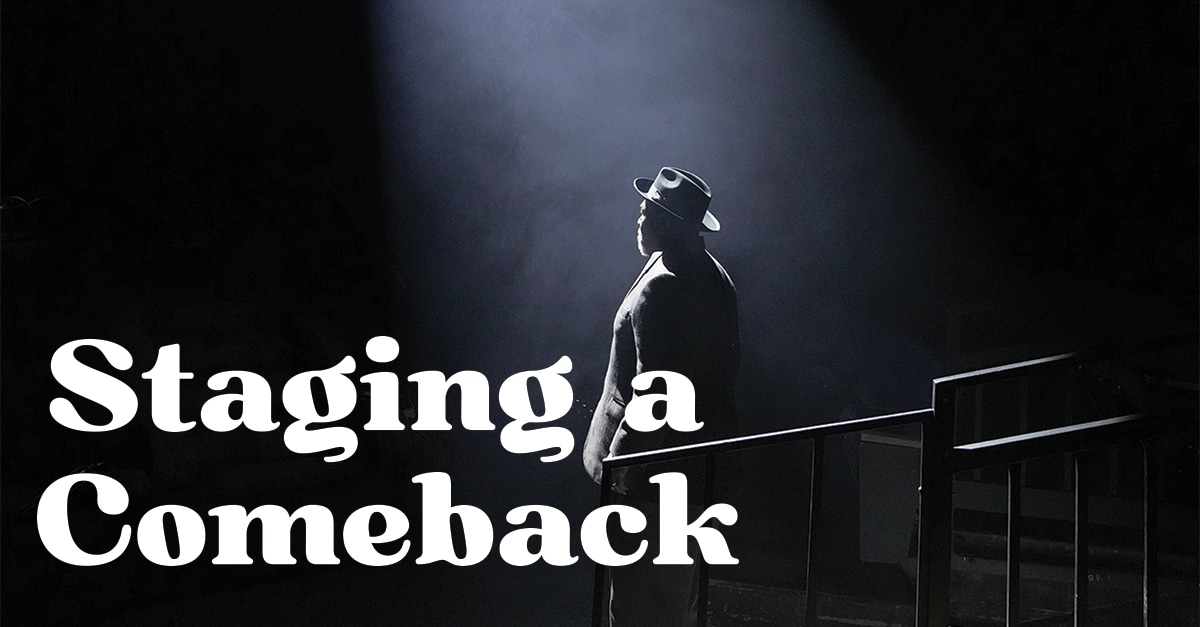Staging a Comeback
Take a Trip to the Oregon Shakespeare Festival…
Driving up interstate 5 from Northern California, signs of resurgence abound after the past two years of wildfires and lockdowns: bright wildflowers amidst the blackened tree trunks and a steady stream of California cars headed for “near abroad” tourist attractions.
Prime among these has always been the Oregon Shakespeare Festival in Ashland. Just a couple of hours’ scenic drive from Redding, the festival offers world-class theatre at affordable prices, with tickets selling for $35 to $75 under a newly streamlined reservation system. All this in a quaint college town nestled amidst trout-stocked lakes, hilly hiking/biking/ bridle trails, gourmet dining and prize- winning wineries.
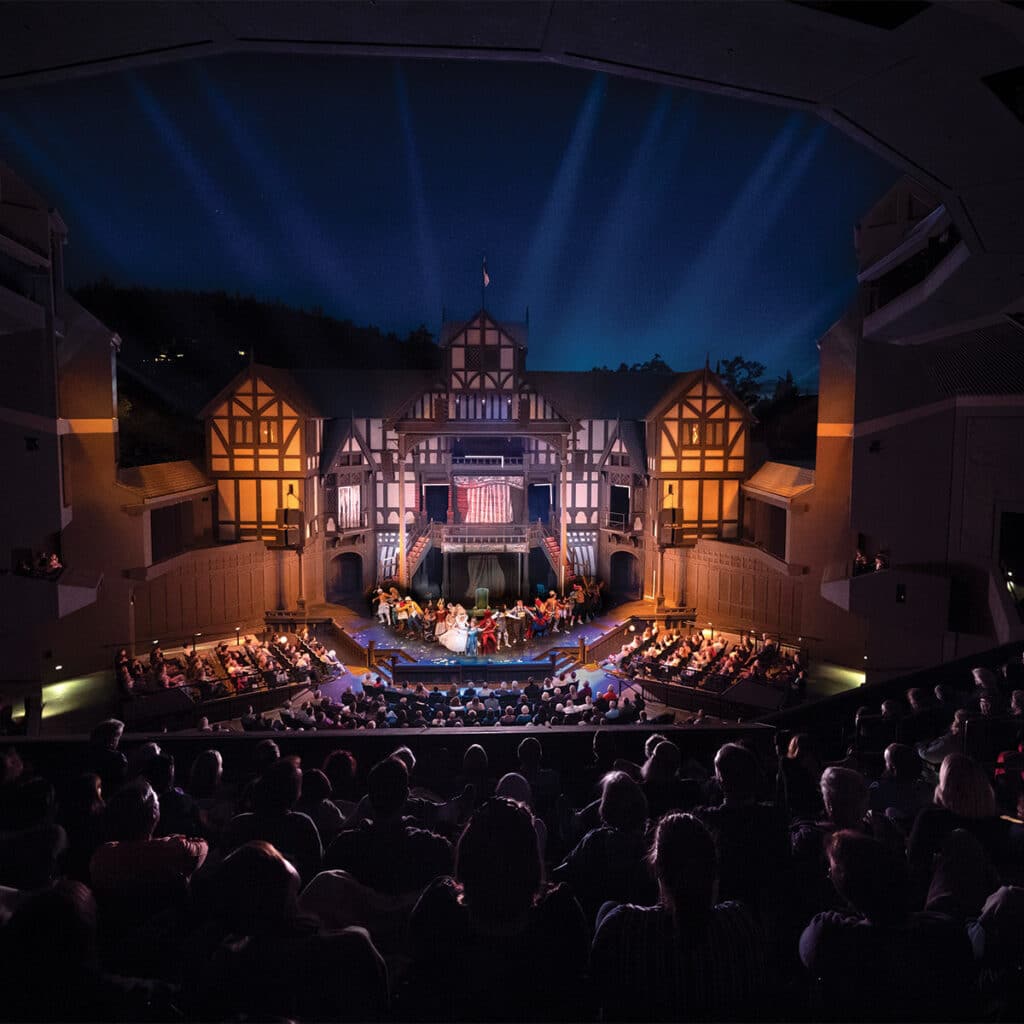
Now rounding out its 87th year, the Oregon Shakespeare Festival’s repertoire ranges from cutting-edge world premieres to new takes on old classics, “black-box” experiments to hum-along musicals, stand-up monologues to lavish Shakespearean extravaganzas. With three state-of-the-art stage venues plus scores of unionized actors and technicians to support, the festival has been hard-hit by recent closures.
Yet, as Shakespeare himself says (in “Henry VI Part III”), “Wise men ne’er sit and wail their loss but cheerily seek how to redress their harms.” So Artistic Director Nataki Garrett has mapped out 2022 as the festival’s comeback season, with seven fresh live-stage productions plus edgy online offerings. Aptly enough, the season kicked off in June with five very different plays united by the “comeback” theme of resilience.
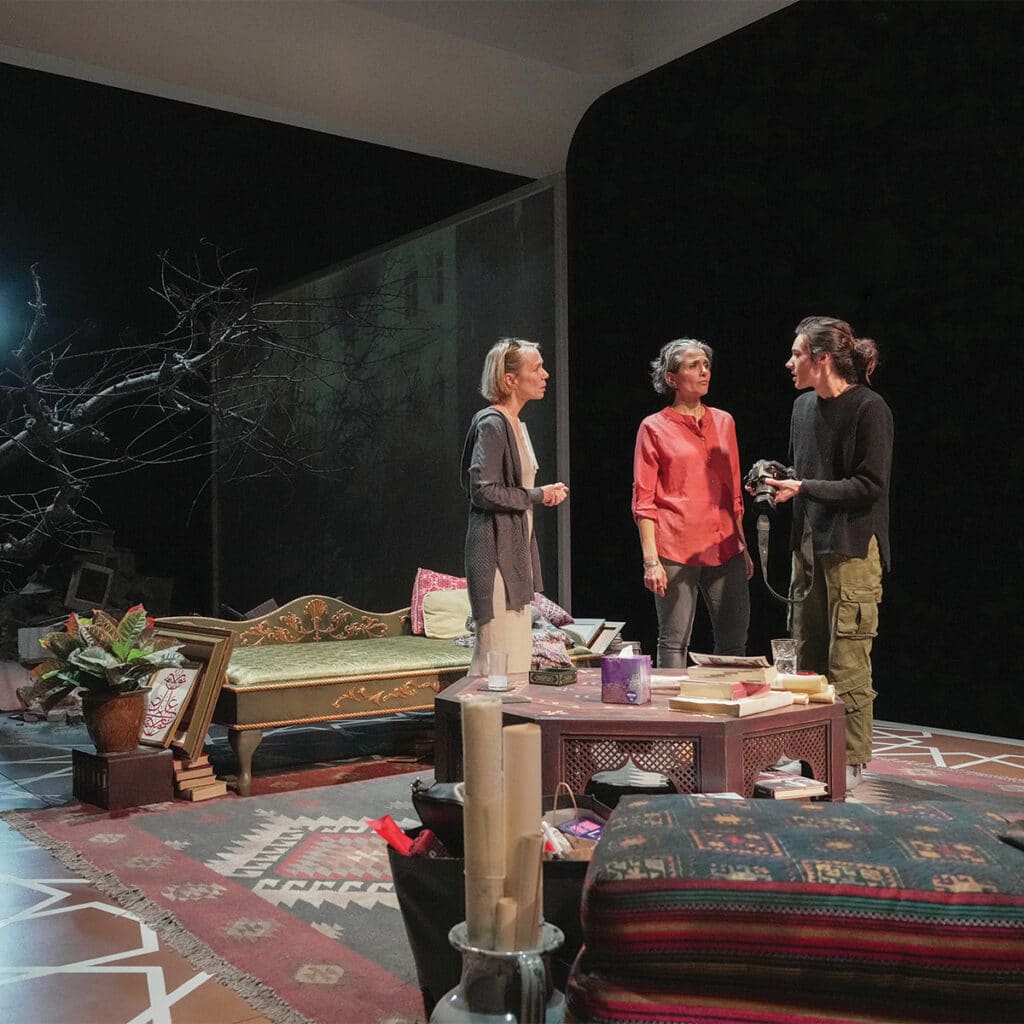
Coming back from the very verge of death, war photographer Mia, protagonist of Arab- American playwright Mona Mansour’s one-act psychodrama “unseen,” is plucked unconscious from a Syrian battlefield. She wakes up, amnesiac, in her ex-lover’s Istanbul flat. Through a series of dreams, flashbacks and soul-searching dialogues, she overcomes PTSD to recollect her own suppressed act of heroic witness – a storyline all too salient in this era of renewed wartime trauma and frontline photojournalism.
With an all-female cast of three (to play seven roles), “unseen” uses video projections, musical montages and lightning costume changes to steer the audience through its phantasmagoric narrative. The impact is heightened by the intimacy of its venue, the 270-seat “black box” Thomas Theater.
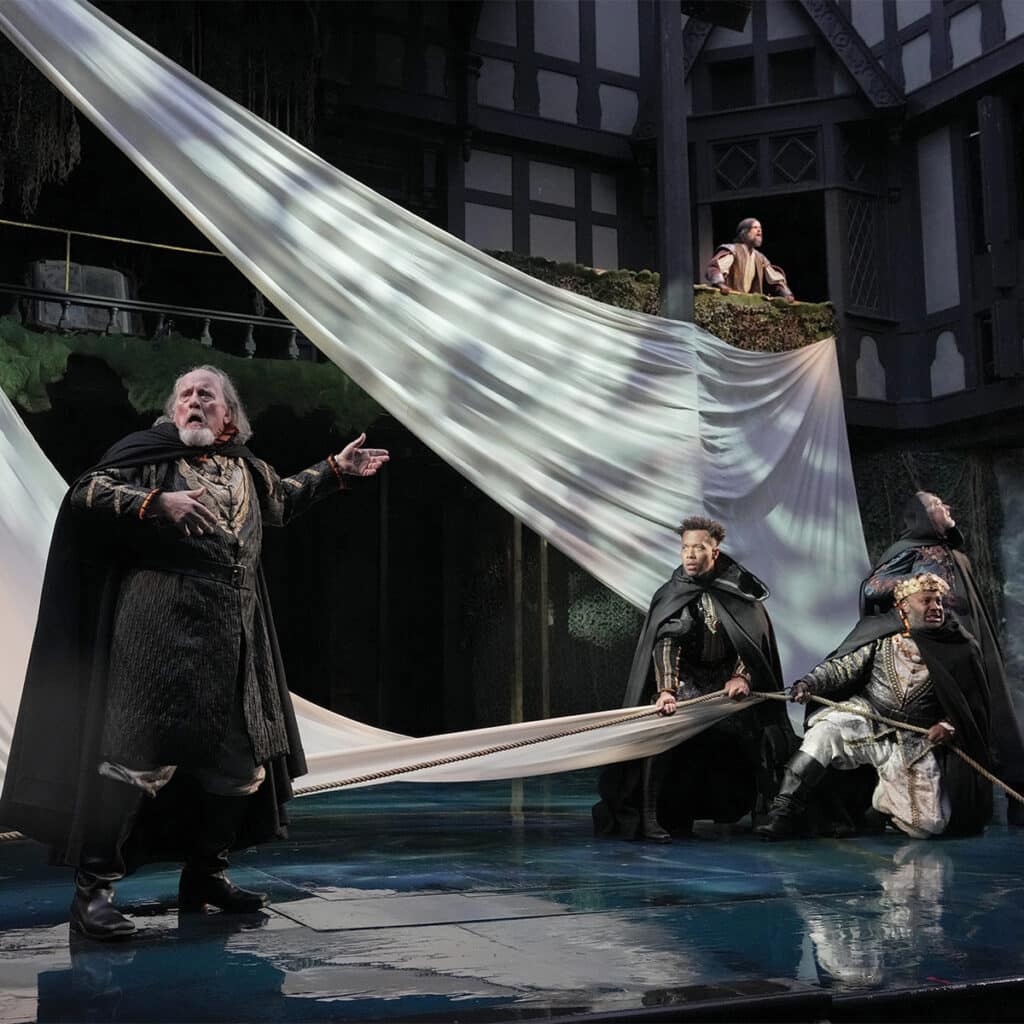
By way of contrast, the Oregon Shakespeare Festival staged another comeback drama – “The Tempest,” its Shakespearean season- opener – in its grandest venue, the 1,200-seat outdoor Elizabethan stage. Modeled on Shakespeare’s own Globe Theatre, the Elizabethan offers director Nicholas Avila a baroque array of balconies, ramps, runways and trap doors (plus ultra-modern sound, lighting and projection systems) for a bombastic Tempest full of FX wizardry.
It’s a retro production that stresses the straightforward retributive storyline rather thanthemorenuanceddreamtimedimensions or the subtleties of Shakespeare’s language. But the show is briskly paced, with slapstick clownery, gratifying come-uppances and dewy younglove–sowhat’snottolike?
On alternate nights, the Elizabethan stage is given over to a drastically different tale of resilience – “Revenge Song,” a manga-themed take on the amours of a cross-dressing 17th century French opera diva.
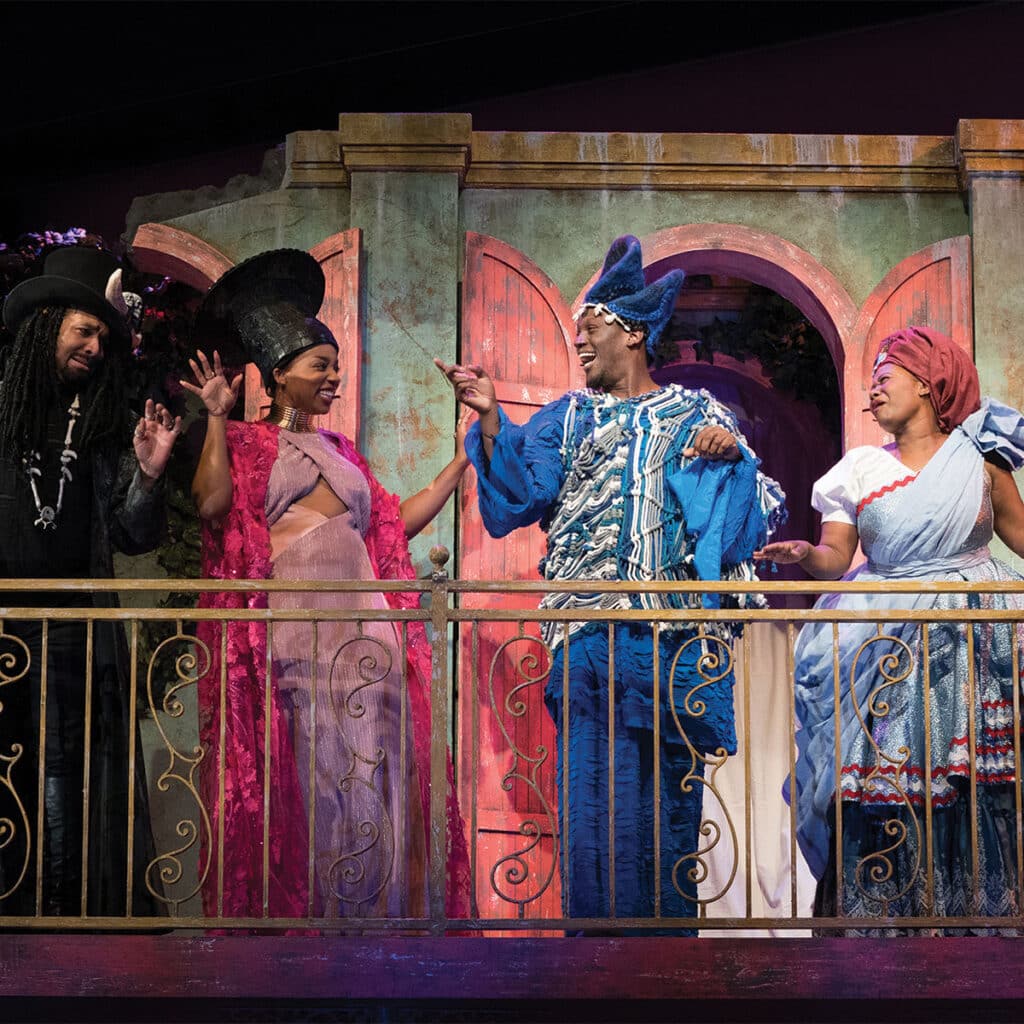
The 2022 season’s other musical – “Once On This Island” – boils down to the same resilient story arc, but pitched in the far gentler idiom of creole rhythms and Caribbean pastel hues. It’s a retelling of Hans Christian Anderson’s Little Mermaid fairytale, recast against a backdrop of Haiti’s “colorist” caste system with a presiding pantheon of Voodoo demiurges.
Linchpin of the show is the central Mermaid character, Ti Moune. She’s played by Ashland neophyte Ciera Dawn, a polymath who acts, dances or sings with equal aplomb, ably supported by a 16-member cast, all playing multiple roles. So much talent makes for a snug fit onto the thrust-stage of the festival’s mid-sized (600-seat) Bowmer Theater.
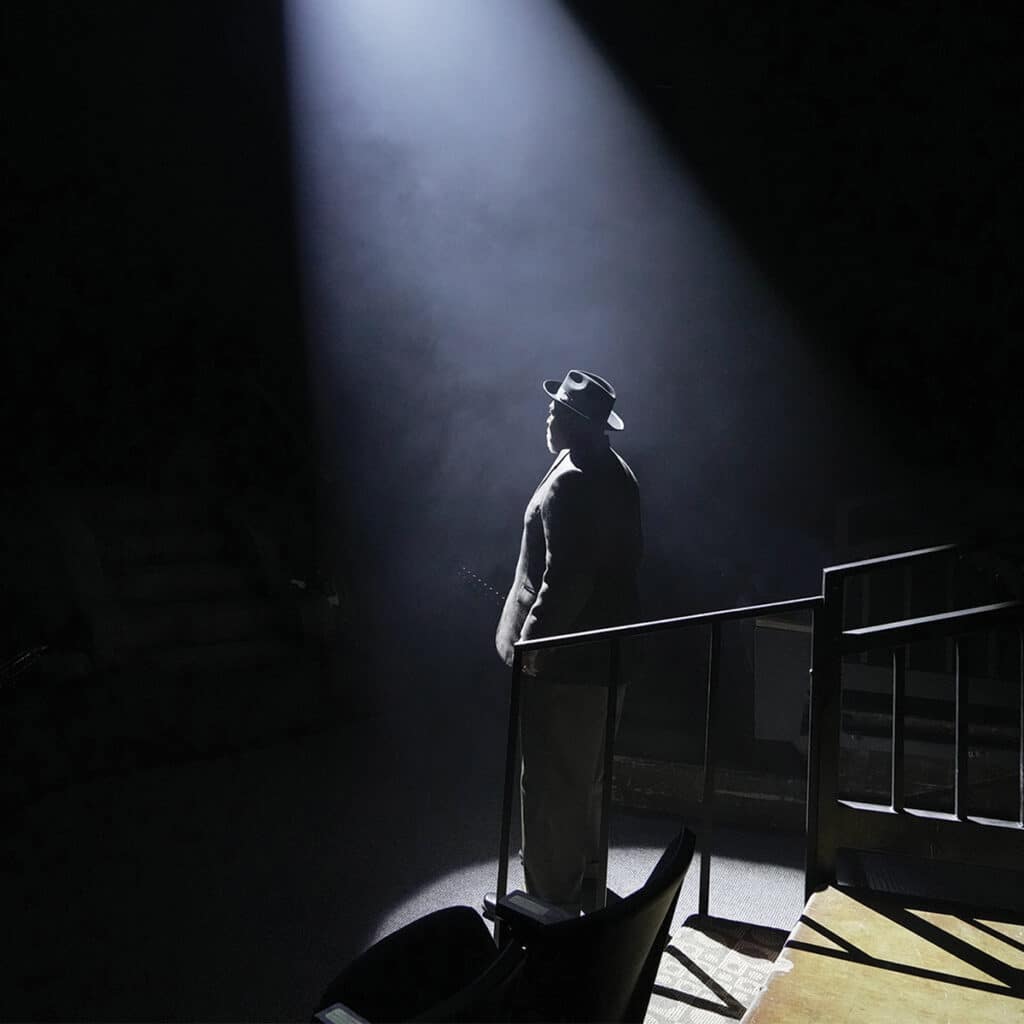
Yet on alternate days, the same stage is filled to bursting by the solo talent of a single actor, Stephen Anthony Jones, playing the late auteur August Wilson in “How I Learned What I Learned.” In an uninterrupted 105-minute monologue, Jones presents us an old man wryly recalling the vagaries of a young man inventing himself as an artist and as a Black American male in 1960s Pittsburgh.
Wilson is best known for his 10-play Pittsburgh Cycle, a decade-by-decade chronicle of 20th century Black experience in his hometown. But, rounding on his 60s and having completed the Cycle, he set his course on a more free-form “stand up” raconteurial style. Wilson himself performed the first iterations of “How I Learned” before his untimely death in 2005. Director Tim Bond, who brought many of the Cycle plays to the Oregon Shakespeare Festival stage over the years, says he’s now “thrilled” to collaborate with dramaturg Costanza Romero, Wilson’s widow, on this 2022 Ashland revival.•
Oregon Shakespeare Festival • www.osfashland.org
Article Written by:
Lincoln Kaye has been reporting for half a century, first on U.S dailies, next as a merchant banker in London, then as a foreign correspondent in Asia for 20 years, and finally as a forest fire lookout in the Shasta-Trinity National Forest. He now divides his time between Canada and NorCal.

